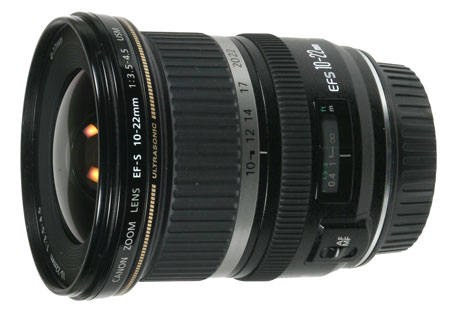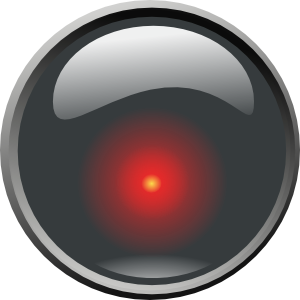
best canon video lens 550d image

HandsomeFr
I'm really only interested in the HD video, specifically what it can do at 24fps for the artsier look... What are the main differences in video between the 2 cameras? Thanks!
Better why....??? I need specifics please!
Answer
Canon EOS Rebel T2i
http://www.amazon.com/gp/product/B0035FZJHQ?ie=UTF8&tag=0610-20
Review: I'm a frequent upgrader and loyal Canon fan. I traded up from an XSi last year to the T1i, and now this year to the T2i. I was within days of ordering the 7D until they announced the T2i, with all the features I wanted from the 7D at half the cost. I immediately pre-ordered the T2i and have been having some fun with it over the last 24 hours. The verdict so far? I am in love with this SLR.
I believe the last few iterations in the Rebel series have been comparable in quality. The T2i shares much of the same pros and cons with its predecessors, and ultimately, not too much has really changed. That said, the very minor things that did change were huge to me. I'm big into video, which is what got me looking into the 7D. Both the 7D and the T2i have the stereo audio input jack. My T1i just had the built-in mono mic which was unacceptable for someone who is doing more than home videos with this camera. So that feature, along with full manual control of video recording (not available in T1i), and 1080/24p (and 30p if that's your preference) makes this a common sense upgrade if you're serious about video. 720p/60 is also really cool for the silky smooth framerate, although I personally find the movie-like feel of 24p video best.
As for what the camera is really made for, still photography, it is still the king at (in the mid-entry-level DSLR class). 18 megapixels really, truly is more than any person really needs. My XSi from a couple years back met all my needs with 12mp, however, 18 creates for even better bragging rights to the general public. "How many megapixies is that thingy? Eighteen? OMG! You are such a pro!" Anyway, back on track now. The noise levels in most photos I've taken are pretty decent for 18 megapixels. It's comparable to the noise on the 15MP T1i from what I've experienced so far. 6400 ISO is now a default option instead of an expanded setting (12800 ISO still is), which is nice to have, though you'll hopefully never have to use it.
The kit lens is of course the same old 18-55 I've bought practically 5 times over now. A great budget lens and excellent value, but I absolutely can't go back to using it after buying some of the better lenses Canon has to offer. If the money's there, you will not regret investing another few hundred dollars some better glass. Otherwise, the 18-55 is a great lens to start out with.
Only major complaint I have is the white balance in incandescent lighting still isn't as accurate as I'd like. I also wish they kept the same LP-E5 battery so the two I already have would be compatible with both of my cameras. And a nitpick, the "Rebel" name is stupid, to be completely honest. It should be named "550D" as it is in the Europe market. SDXC support is cool, but I can't really comment on it as I'll be using SDHC cards for the foreseeable future. Oh, and the slightly redesigned buttons are a welcome change. A little more ergonomic than before.
In conclusion, if you're thinking about upgrading from a T1i, there isn't really a compelling reason to unless you are okay spending hundreds just for the sake of having the latest in gadgetry (what I do), UNLESS you are in it for the video support, which is AMAZING at this price point. You used to have to spend at least a couple thousand on a professional camcorder to get the kind of video support that you can now get in a consumer DSLR at a very reasonable price. Thanks, Canon! Oh, and amazon got it to me super fast too!
What is a good camera for film and cinema?

andrew
Ok, I want to start making my own films. I was thinking of getting the Canon Rebel T2i but I dont know if it is a good camera. Please give me some advice, thanks! Oh and i want the price to be under $800. Thanks!
Answer
Hello,
I myself am looking for the right film camera for me, but the camera you say that you are thinking of getting, is not really for filming. Yes, the cameras such as the Canon Rebel T2i, Canon 50d/7D/550D are great cameras, they are not for film. Although they shoot film, they are for picture quality, and mainly if you want to use these cameras for filming, the quality will be OKAY unless it is still footage. What you want, is a camcorder which are mainly for film.
For example, the Panasonic Pro AG-HMC150 3CCD AVCHD 24fps Camcorder (http://www.amazon.com/Panasonic-AG-HMC150-AVCHD-24fps Camcorder/dp/B001DKELYC/ref=pd_zg_rss_tr_e_172421_2) is slightly over the price of the Canon 7D. BUT, this camera is strictly for film, while the canon 7D, or the camera you are looking at, are basically for picture. So all in all, what you want is a camcorder and you can look at this site that gives you the "Top Rated Camcorders of 2010-2011", and it will display the price, features and reviews for many camcorders!
The Canon Rebl T2i shoots some pretty great video just as good as the Canon 7D, and I will post a link in the "sources" of some really helpful filming tips, where they are using the Rebel T2i to film the video.
But for the price under $800, I would look on that site for a handheld HD camcorder, or get the camera you want, but the Canon 7D is a very good option with proper lenses too, but the price is steep of $1500-$2000, plus $300-$400 for a good lens. :/
-Also you must remember that the camera is not what gives you good quality; it may help, but it is very minimal. You will need a good Lens for your camera to give it the best quality possible, and also look into lighting, and adjusting color contrasting and color grading when you are EDITING the film (look up some tutorials on youtube to adjust color to give it that cinematic look) so that way you have the best possible image. (I will give some links in the bottom that helped me with some film makig tips) Hope this helps :)
Powered by Yahoo! Answers

































